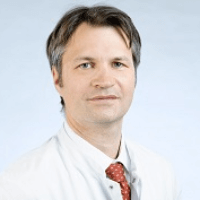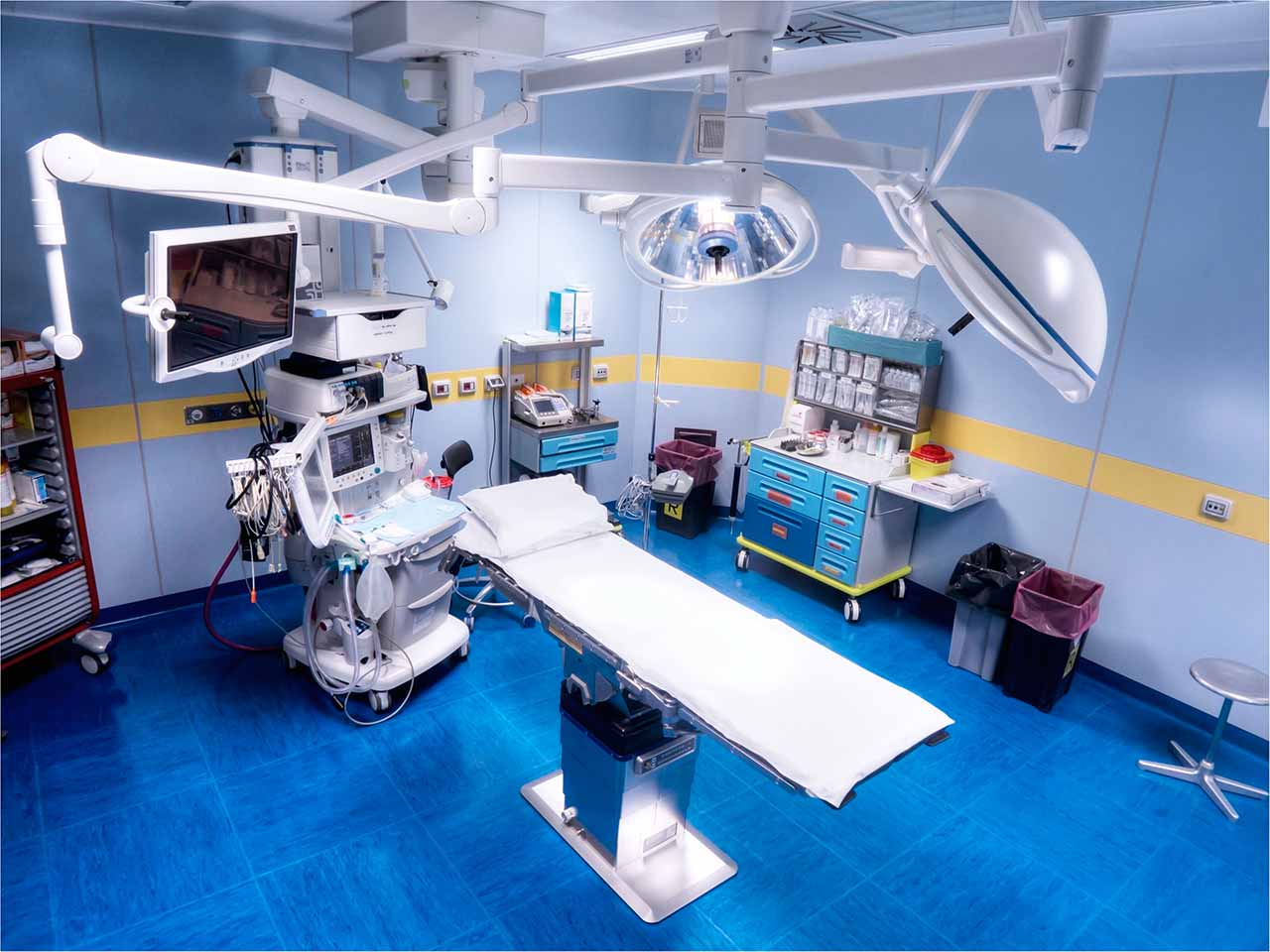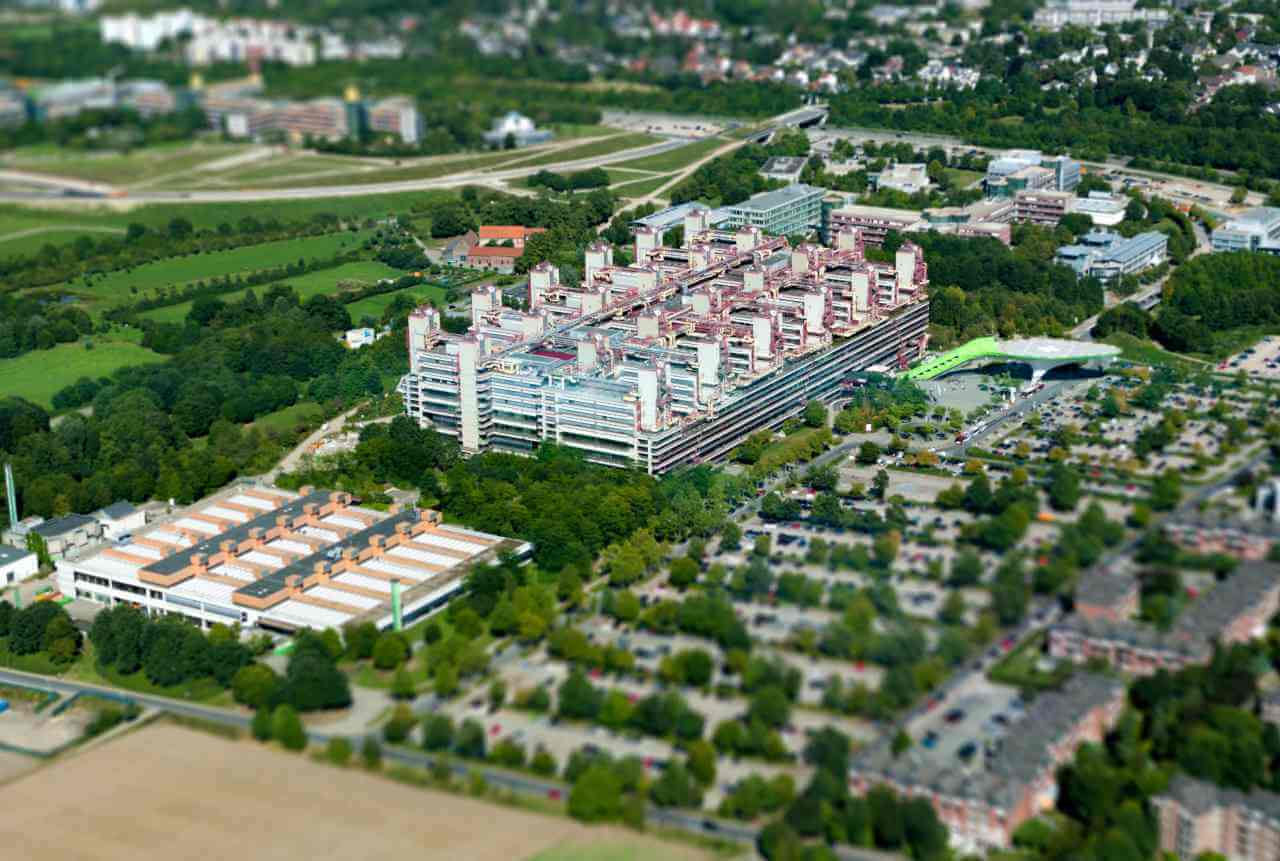
The program includes:
- Initial presentation in the clinic
- clinical history taking
- review of medical records
- physical examination
- laboratory tests:
- complete blood count
- general urine analysis
- biochemical analysis of blood
- TSH-basal, fT3, fT4
- tumor markers (AFP, CEA, СА-19-9)
- inflammation indicators (CRP, ESR)
- indicators of blood coagulation
- abdominal ultrasound scan
- colonoscopy with biopsy (if indicated)
- CT scan/MRI of the abdomen
- tumor board
- consultation of related specialists in radiology, surgery and oncology
- preoperative care
- da Vinci treatment in rectal cancer
- symptomatic treatment
- control examinations
- the cost of essential medicines and materials
- nursing services
- nutrition recommendations
- full hospital accommodation
- explanation of future recommendations
How program is carried out
During the first visit, the physician will conduct a clinical examination and go through the results of the available diagnostic tests. After that, you will undergo the necessary additional examinations, such as the assessment of liver and kidney function, abdominal ultrasound scan, CT scan and MRI. Based on the results of an additional examination, the physician will clarify the stage of the oncological process, choose the volume of the intervention and the type of anesthesia.
Surgery with the da Vinci robot starts with general anesthesia. After anesthesia, the surgeon makes small incisions on the anterior abdominal wall, through which he inserts the da Vinci robot manipulators and a video camera into the abdominal cavity. With the help of manipulators, the doctor ligates large blood vessels and removes the affected areas of the rectum. The video camera continuously transmits a three-dimensional image of the surgical area in 12-fold magnification to the monitor. The surgeon installs drainage into the abdominal cavity and finishes the operation.
The surgery with the da Vinci robotic system significantly reduces the risk of bleeding during the operation and in the postoperative period, and the magnification of the operating field allows the surgeon to remove all the malignant foci.
After the completion of the operation, you will be transferred back to the ward, under the supervision of the attending physician and nursing staff. Due to the minimal invasiveness of the operation and the short duration of general anesthesia, you will not need to stay in the intensive care unit for a long time.
Finally, the attending physician will evaluate the results of control examinations, schedule the date of discharge from the hospital and give you detailed recommendations for further follow-up and treatment.
Required documents
- Medical records
- MRI/CT scan (not older than 3 months)
- Biopsy results (if available)
Service
You may also book:
 BookingHealth Price from:
BookingHealth Price from:
About the department
According to Focus magazine, the Department of Adult and Pediatric General, Abdominal, Transplant Surgery at the University Hospital RWTH Aachen ranks among the top German medical facilities specializing in bowel cancer treatment!
The department performs surgical treatment of general surgical diseases, abdominal pathologies, and also specializes in organ transplantation. Of particular interest are surgical oncology of the abdominal organs, as well as pancreatic and liver surgery. The department annually performs more than 3,000 surgical interventions, which contributes to its credibility at the national level. The Chief Physician of the department is Prof. Dr. med. Ulf Peter Neumann.
The department has four high-tech operating rooms with advanced equipment, for example, CUSA and LIMAX systems for liver surgery, modern high-resolution HD technology for minimally invasive surgery and special instruments for laparoscopic surgery.
Preference is always given to sparing minimally invasive surgery, which is characterized by several advantages, namely the absence of large scars, quick recovery of the patient, minimal blood loss and the risk of infections. At the moment, minimally invasive surgery has reached a high level of development and it is increasingly used for the treatment of abdominal tumors, which previously could be removed exclusively through laparotomy access.
Individually adapted treatment concept is important for the department's doctors. The patient's wishes will be necessarily taken into account. A crucial role is also given to the interdisciplinary approach, namely, the specialists from the Departments of Internal Medicine, Radiology and Anesthesia are involved in the treatment process. The patient medical care meets the requirements of the specialized societies. Only modern, reliable and proven treatment methods are used in clinical practice.
Since the key to successful treatment is accurate diagnostics, the doctors offer patients the most informative imaging examinations, such as computed tomography (CT), magnetic resonance imaging (MRI) and positron emission tomography (PET). These techniques allow not only to carry out the accurate diagnostics, but also to plan the surgical intervention in detail. Thus, the department's doctors have the opportunity to treat those surgical diseases, which until recently were considered incurable.
The surgical service range of the department includes:
- Obesity and metabolic surgery
- Gastric bypass surgery
- Endoscopic sleeve gastroplasty
- Mini-gastric bypass surgery (Omega-loop Gastric Bypass)
- Hepatobiliary surgery (liver surgery)
- Surgery to resect hepatocellular carcinoma
- Surgery to resect cholangiocellular carcinoma
- Surgery to resect Klatskin tumor
- Liver metastasis surgery
- Surgical treatment of malignant peritoneal diseases
- Cytoreductive surgery in combination with hyperthermic intraoperative peritoneal chemotherapy (HIPEC) in adults and children
- Endocrine surgery
- Thyroid surgery
- Enucleation of palpable abnormalities
- Resection of palpable abnormalities
- Thyroid isthmus resection
- Subtotal thyroid lobe resection
- Total thyroid lobe resection
- Hemithyroidectomy (removal of one thyroid lobe)
- Hemithyroidectomy with contralateral subtotal resection (Hartley-Dunhill operation)
- Bilateral subtotal resection
- Total thyroidectomy
- Parathyroid surgery
- Adrenal surgery
- Surgery for neuroendocrine tumors of the gastrointestinal tract
- Thyroid surgery
- Sparing endoscopic diagnostics
- Endoscopic examinations and procedures
- Esophagogastroduodenoscopy
- Complete endoscopic examination of the esophagus, stomach and duodenum
- Proctoscopy/colonoscopy
- Complete endoscopic examination of the rectum
- Endosonography
- Ultrasound examination of the upper gastrointestinal tract and rectum
- Endoscopic retrograde cholangiopancreatography
- Examinations of the bile ducts, gallbladder ducts and pancreatic ducts
- Enteroscopy (examination of various sections of the small intestine)
- Esophageal manometry
- Anorectal manometry
- Contrast-enhanced diagnostic and therapeutic sonography for targeted puncture of the liver or abscess drainage
- Endoscopic examinations and procedures
- Hernia repair (inguinal and umbilical hernias)
- Pediatric surgery
- Hernia repair (inguinal and umbilical)
- Correction of undescended testicles
- Phimosis correction
- Tissue sampling procedures for further examination
- Sparing surgery (laparoscopy)
- Surgery to treat reflux esophagitis
- Splenectomy
- Cholecystectomy
- Appendectomy
- Colectomy
- Operations on the small and large intestine
- Diagnostic procedures
- Neonatal surgery (treatment of children weighing more than 500 grams): operations for the treatment of atresia, necrotizing enterocolitis and spontaneous intestinal perforations, as well as hernia repair, cancer surgery, complex liver interventions, including liver transplantation, interventional procedures (bougienage, drainage placement, etc.)
- Surgery for traumatic injuries of the abdominal organs (ruptures of the liver and spleen, intestinal and pancreatic injuries)
- Colorectal surgery
- Inflammatory bowel diseases in adults and children (diverticulitis, Crohn's disease, ulcerative colitis)
- Colorectal cancer
- Minimally invasive surgery
- Diagnostic laparoscopy
- Cholecystectomy
- Atypical liver resection
- Splenectomy (spleen removal)
- Adrenalectomy (adrenal gland removal)
- Fundoplication
- Partial gastrectomy
- Inguinal and incisional hernia repair (TAPP, IPOM)
- Colorectal surgery
- Appendectomy
- Bariatric interventions (gastric bypass surgery, gastric banding)
- Liver transplantation
- Surgical treatment of benign and malignant diseases of the esophagus, stomach
- Pancreatic surgery
- Surgical treatment of sarcomas (for example, retroperitoneal sarcomas)
- Other medical services
Curriculum vitae
Education
- October 1986 - May 1987 Study of Human Medicine at the Free University of Berlin.
- May 1987 Preliminary Medical Examination (Physics), Free University of Berlin.
- 14.03.1989 Part 1 of Medical Examination, Free University of Berlin.
- 10.04.1990 Part 2 of Medical Examination, Free University of Berlin.
- 20.03.1992 Part 3 of Medical Examination, Free University of Berlin.
Professional Сareer
- May 1993 Preliminary admission to medical practice.
- May 1993 - November 1994 Intern, Department of General, Abdominal and Transplant Surgery.
- November 1994 Admission to medical practice, Research Fellow in the Department of General, Abdominal and Transplant Surgery.
- 1998 Thesis defense at the Free University of Berlin. Subject: "The value of nitric oxide in human liver transplantation".
- May 1999 - May 2000 Research Fellow in the Department of Traumatology and Reconstructive Surgery, Charite University Hospital Berlin, Campus Virchow.
- September 2000 Specialization in Surgery.
- March 2003 Surgical Rehabilitation, Faculty of Medicine, Humboldt University of Berlin.
- March 2003 Venia legendi in Surgery, Faculty of Medicine, Humboldt University of Berlin. Subject of the habilitation work: "Examination of the effectiveness of CTLA-4Ig therapy in combination with adoptive cell transfer for the prevention of rejection reactions in rat orthotopic transplantation models".
- Since June 2002 Senior Physician, Department of General, Abdominal and Transplant Medicine, Charite University Hospital Berlin.
- Since 2006 Deputy Head of the Department of General, Abdominal and Transplant Medicine, Charite University Hospital Berlin.
- August 2006 Specialization in Abdominal Surgery, Head of the Department of Adult and Pediatric General, Abdominal, Transplant Surgery at the University Hospital RWTH Aachen.
Membership in Professional Societies
- German Society of Surgery (DGCH).
- German Society for General and Abdominal Surgery (DGAV).
- Berlin Surgical Society.
- German Transplantation Society (DTG).
- German Association for the Study of the Liver (GASL).
- German Society for Digestive and Metabolic Diseases (DGVS).
- North Eastern German Society of Gynecologic Oncology (NOGGO).
- International Liver Transplantation Society (ILTS).
- Gastroenterology Society of the Federal Government of North-Rhine-Westphalia.
- German Cancer Society (DKG).
Photo of the doctor: (c) Uniklinik RWTH Aachen
About hospital
According to the prestigious Focus magazine, the University Hospital RWTH Aachen ranks among the top German hospitals!
As a maximum care university medical facility, the hospital guarantees patients first-class medical services combined with a respectful and human attitude. The hospital integrates all the modern options for the accurate diagnostics, effective therapy and productive research activities within one specialized center.
The hospital has more than 60 departments, institutes and interdisciplinary centers. A competent team of professionals, consisting of more than 7,000 employees (more than 940 doctors, including about 95 professors), takes care of the patients' health. In addition, multidisciplinary teams of nurses, physiotherapists, as well as medical and technical staff are available here. The patients and respectful attitude to their social, cultural and religious affiliations are at the center of all employees' efforts.
The cornerstone of the successful clinical practice is the innovative technical base. The hospital offers the most advanced diagnostic and therapeutic equipment. Thus, the hospital has all the resources in order to provide top-class medical services.
Photo: (с) depositphotos
Accommodation in hospital
Patients rooms
The patients of the University Hospital RWTH Aachen live in comfortable single and double rooms. All patient rooms are designed with large windows, so one can enjoy a beautiful landscape view. Each patient room has an ensuite bathroom. The standard room furnishing includes an automatically adjustable bed, a bedside table, a spacious wardrobe, a TV, a radio and a telephone. Also, there is Wi-Fi access.
Meals and Menus
The patient and his accompanying person have a daily choice of three menus. If for any reason you do not eat all the foods, you will be offered an individual menu. Please inform the medical staff about your dietary preferences prior to the treatment.
Further details
Standard rooms include:
Religion
Religious services are available upon request.
Accompanying person
During the inpatient program, an accompanying person may stay with you in a patient room or at the hotel of your choice.
Hotel
During the outpatient program, you can live at a hotel of your choice. Managers will help you to choose the most suitable options.
The hospital offers a full range of laboratory tests (general, hormonal, tests for infections, antibodies, tumor markers, etc.), genetic tests, various modifications of ultrasound scans, CT scans, MRI and PET / CT, angiography, myelography, biopsy and other examinations. Treatment with medications, endoscopic and robotic operations, stereotaxic interventions is carried out here, modern types of radiation therapy are also used. The hospital offers patients all the necessary therapeutic techniques.
- Embolization of tumors and vascular malformations
- Aortic surgery, including in children
- Radiosurgical interventions in the head and body region
- Cochlear implantation
- Treatment of all types of sports injuries
These are pathologies of the brain and spinal cord, benign and malignant tumors of various localizations, congenital and acquired heart defects, joint pathologies, stroke, neurodegenerative diseases, eye injuries, inflammatory skin diseases, allergies and other pathologies.
- Oncology (EU Regional Center for Comprehensive Cancer Care Aachen)
- Pediatric cardiac surgery
- General and abdominal surgery
- Plastic and burn surgery
- Pediatric and adolescent medicine
Over 940 highly qualified doctors work at the hospital.





